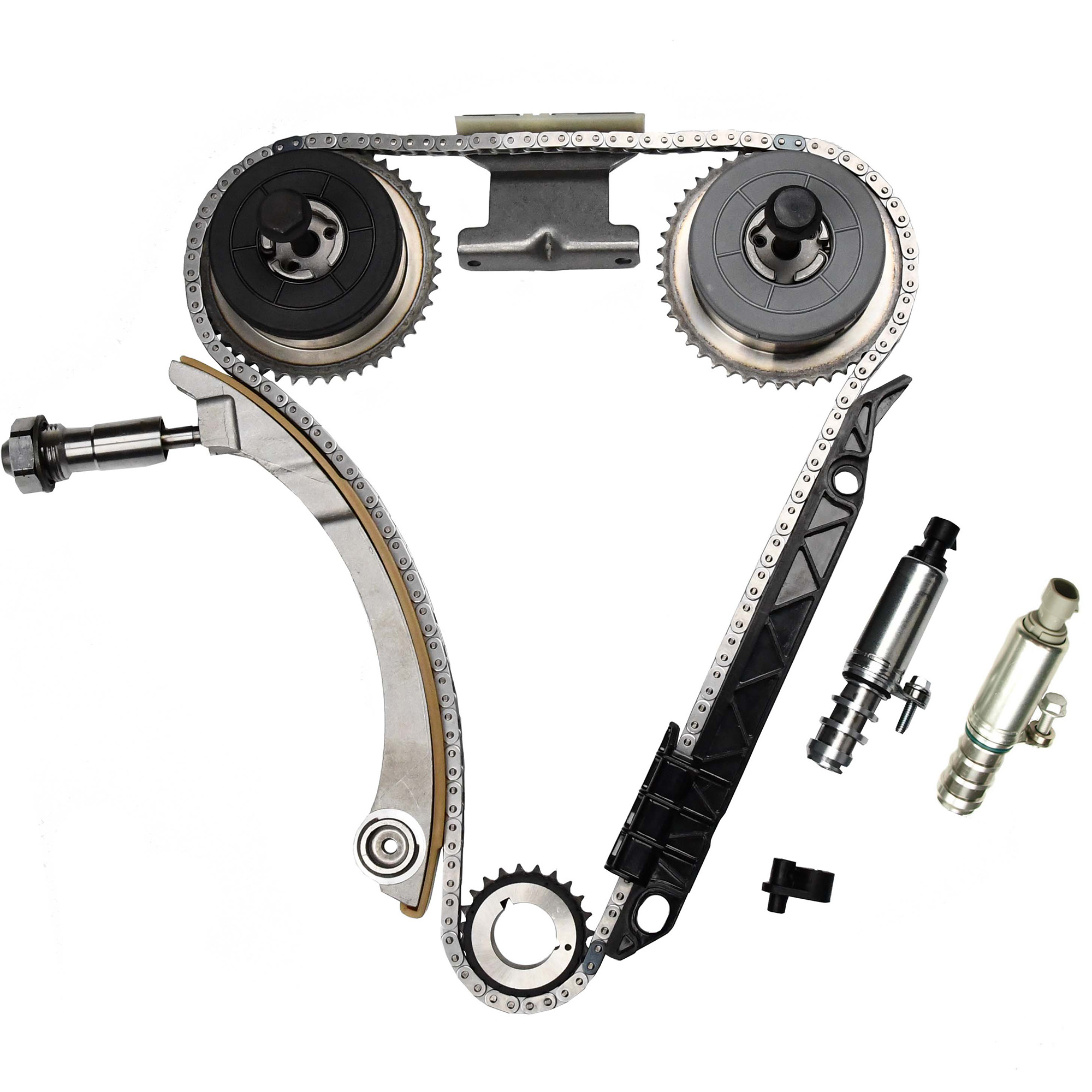Does Engine Timing Chain Kit Need Regular Replacement?
The engine timing chain kit is a crucial component of a car's engine. It plays a vital role in ensuring that the engine's valves and pistons operate in perfect harmony, allowing your vehicle to run smoothly. But the question that often arises is whether this component needs regular replacement. In this article, we'll delve into the factors that determine the need for timing chain kit replacement and whether it should be part of your regular maintenance routine.
The engine timing chain kit is a crucial component of a car's engine. It plays a vital role in ensuring that the engine's valves and pistons operate in perfect harmony, allowing your vehicle to run smoothly. But the question that often arises is whether this component needs regular replacement. In this article, we'll delve into the factors that determine the need for timing chain kit replacement and whether it should be part of your regular maintenance routine.

What is the Engine Timing Chain Kit?
Before we explore the need for replacement, it's essential to understand what the engine timing chain kit is and how it works. The timing chain is responsible for synchronizing the crankshaft and camshaft rotation, ensuring that the engine's valves open and close at the right time. This precise timing is crucial for optimal engine performance.
Factors Influencing Timing Chain Kit Replacement:
1. Manufacturer Recommendations: The first thing to consider is the manufacturer's recommendations. Different car models and engines may have varying lifespans for their timing chain kits. It's crucial to consult your vehicle's manual or the manufacturer's guidelines to determine the recommended replacement interval.
2. Mileage: High mileage can accelerate wear and tear on the timing chain and its components. If you frequently drive long distances, it might be necessary to replace the timing chain kit sooner than the manufacturer's recommendation.
3. Oil Changes and Maintenance: Regular oil changes are essential for the health of your engine's timing chain. Dirty or low-quality oil can lead to premature wear. Adequate maintenance, such as replacing the timing chain tensioner, can also prolong the life of the timing chain kit.
4. Symptoms of Wear: Pay attention to any unusual symptoms, such as engine misfires, rattling noises from the timing chain area, or poor engine performance. These could be signs of timing chain wear and may necessitate replacement.
5. Driving Conditions: If you frequently drive in extreme conditions, such as extreme heat or cold, the timing chain may wear out faster. These conditions can affect the timing chain's durability.
6. Type of Timing Chain: Some vehicles use timing belts instead of timing chains. Timing belts generally have a more predictable replacement schedule, usually around 60,000 to 100,000 miles, as they are made of rubber and can deteriorate over time.
Conclusion
In conclusion, the need for replacing an engine timing chain kit regularly varies depending on several factors, including manufacturer recommendations, mileage, maintenance practices, symptoms of wear, driving conditions, and the type of timing system your vehicle uses. It's essential to follow your manufacturer's guidelines and pay attention to any signs of wear or performance issues.
Regular maintenance and timely replacement, when necessary, can help ensure the longevity and reliability of your vehicle's engine. Always consult with a qualified mechanic for a professional assessment and replacement if required.
Related news
2024-06-28
Tel: +86-(0)571-87565261 Email: marketing@revoauto.com Add: No.50, Haoshan Road, Pingyao, Yuhang District, Hangzhou, Zhejiang, China© 2023 REVO. All rights reserved. Privacy
Tel: +86-(0)571-87565261
Email: marketing@revoauto.com
Add: No.50, Haoshan Road, Pingyao, Yuhang District, Hangzhou, Zhejiang, China
© 2023 REVO. All rights reserved. Privacy





